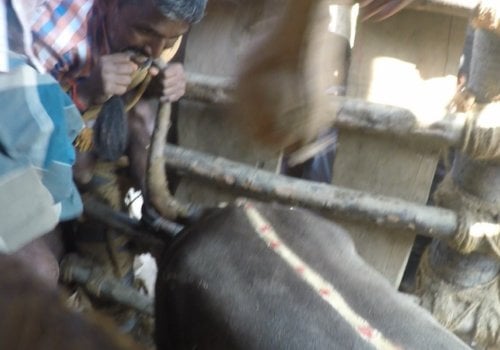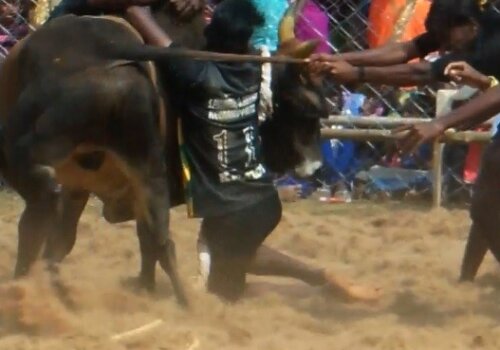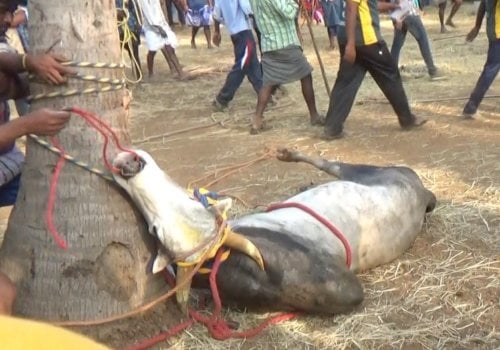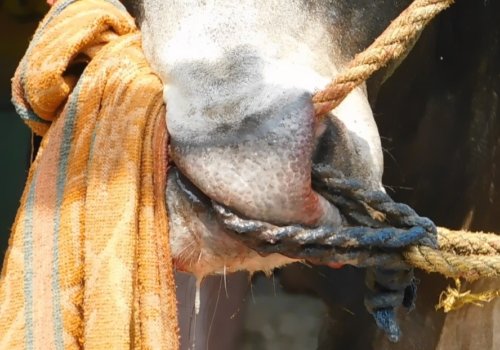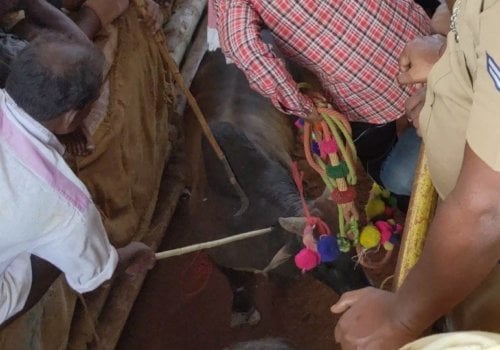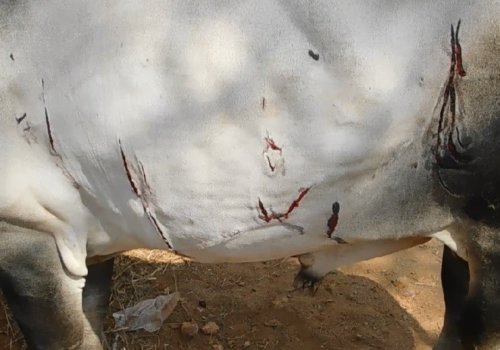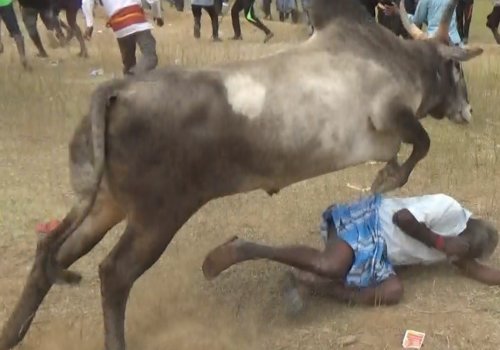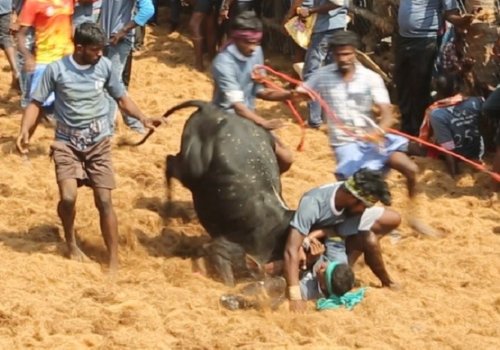From January to February 2019, PETA India investigated seven jallikattu events, in the following locations: Avaniapuram, Palamedu, and Alanganallur (in Madurai district); Keelapanaiyur and Viralimalai (in Pudukkottai district); Ulagampatti (in Dindigul district); and Alagumalai (in Tiruppur district).
This investigation reconfirms that this violent pastime takes advantage of bulls’ natural uneasiness as prey animals by deliberately placing them in a terrifying situation in which they’re prompted to run away from those they rightly perceive as a threat. The evidence – in the form of photographs and video footage – demonstrates that bulls are poked and jabbed with sticks and sickles, hit, jumped on, tackled, bitten, and treated in other cruel ways.
Exhausted and dehydrated animals were forced to participate in jallikattu after standing in queues the night before – for as long as 16 hours – without adequate shelter or sufficient water and feed. They were yanked roughly by nose ropes, causing their nostrils to bleed, and many collapsed from exhaustion and dehydration after the events.
Such abuse at jallikattu events leads to severe injuries, including broken bones, and even to the death of humans as well as bulls. From January 2017, at least 57 humans, 22 bulls and one cow were killed, as calculated from news reports. The actual numbers are likely higher. News reports may not cover the eventual human deaths resulting from injuries sustained during the events, and they certainly don’t always cover what bulls endure.
Regulations Fail to Protect Bulls
The comprehensive investigations conducted by PETA India in 2017, 2018, and 2019 recorded numerous instances of cruelty to bulls (in the form of both mental and physical torture) that are in apparent direct violation of many regulations.
India’s Supreme Court banned jallikattu in May 2014, upholding the Constitution, which mandates that every Indian citizen have compassion for animals. The Prevention of Cruelty to Animals Act, 1960 (PCA), enacted by the central government, makes it illegal to cause animals unnecessary suffering. The PCA (Tamil Nadu Amendment) Act came into effect in January 2017, and the state government also devised corresponding rules regarding the conduct of jallikattu events in Tamil Nadu.
In January 2018, the Animal Welfare Board of India (AWBI) issued guidelines for the conduct of jallikattu events and shared them with Tamil Nadu officials, advising them to share the guidelines in turn with authorities throughout the state.
PETA India’s investigation found that rules listed under the Tamil Nadu PCA (Conduct of Jallikattu) Rules, 2017, and the AWBI’s 2018 guidelines were brazenly violated.
Exacerbating the problem is the fact that none of the regulations hold jallikattu organisers or bull abusers suitably accountable or liable for punishment. This loophole in the legislation gives them a free pass to continue abusing bulls and putting humans in harm’s way.
Jallikattu Must End
Regulations cannot negate the fundamental cruelty of deliberately tormenting bulls. Those who are pushed, hit, prodded, or otherwise abused during jallikattu suffer mentally as well as physically. The ban on jallikattu must be reinstated in order to prevent bulls from enduring cruelty and dying as well as to protect humans from injury and death.
